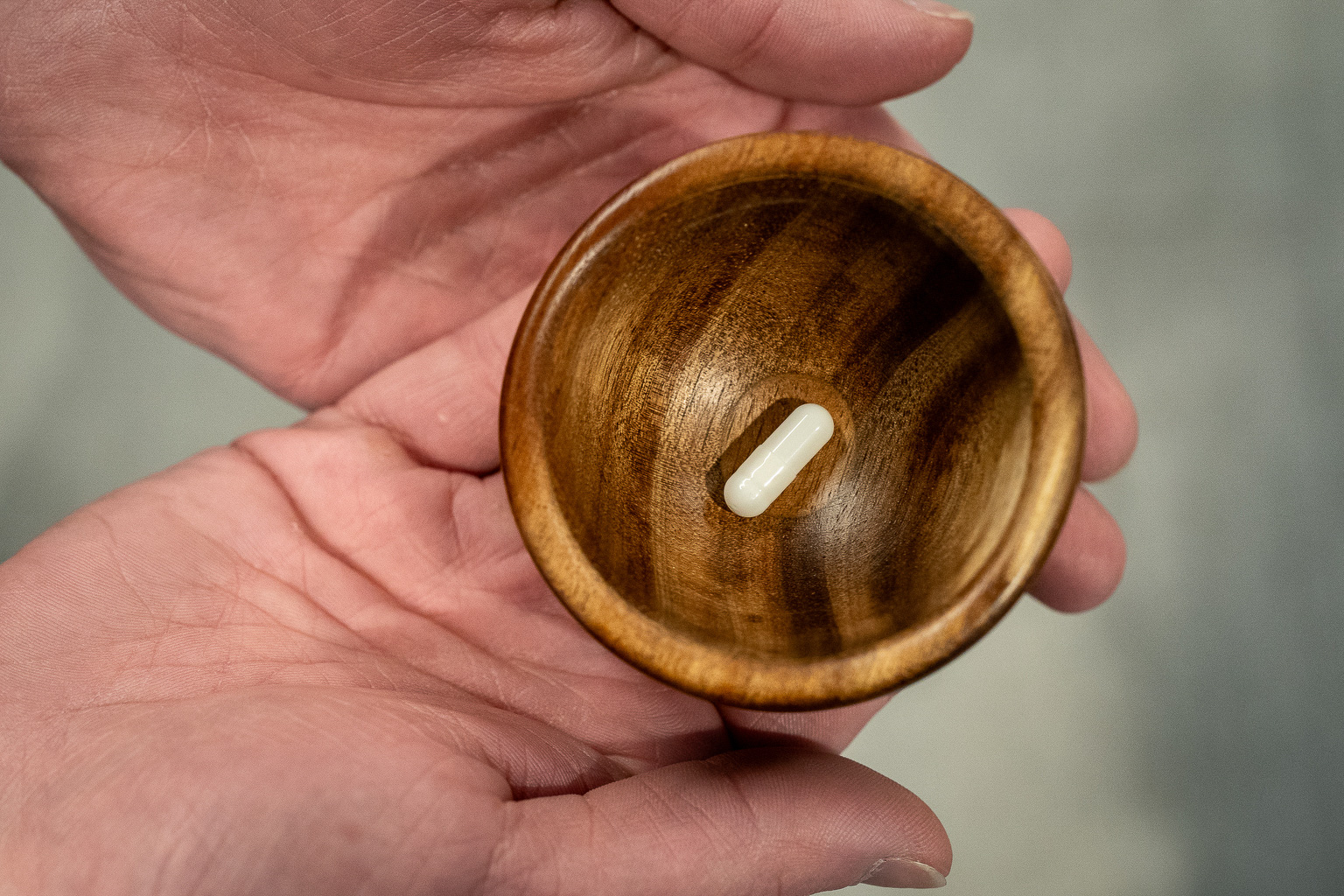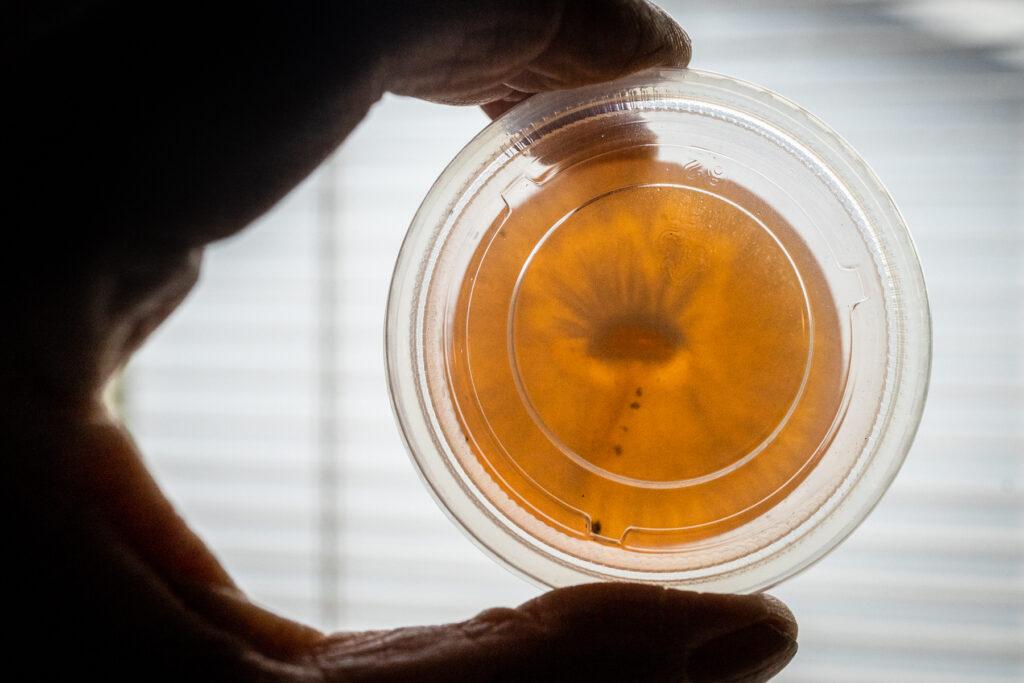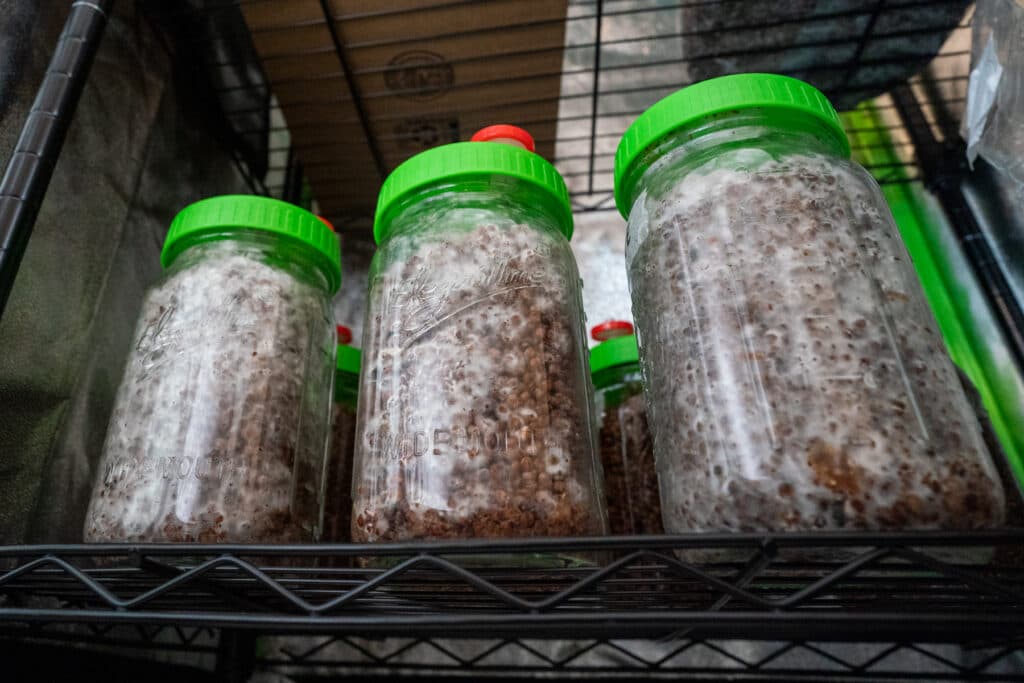
Early next year, the state of Colorado will start issuing licenses for psychedelic therapy centers, places where people can pay to take a supervised dose of psychedelic mushrooms and other forms of psilocybin.
Close to 100 people have told the state they’re interested in opening psilocybin businesses, including mushroom cultivation facilities, testing labs and therapy centers. Those therapy centers will be the only formal, legal businesses that are able to sell psilocybin, and the drug will have to be taken under supervision.
It will be the fulfillment of a change that voters approved back in 2021.
But what will those “healing centers” look like? What forms will the psilocybin come in? Who will produce the drug, and who can work in the industry?
Those are questions the state is trying to answer now. On Thursday, regulators published the latest draft rules that will govern the psilocybin industry here.
It’s a key step. With the new publication, “facilitators and businesses really have what they need to make informed decisions,” said Shawn Hauser, a partner at Vicente LLP, a law firm that has been closely involved in Colorado’s cannabis and psilocybin industries.
Here’s some of what the draft rules say:
Inside and out:
Therapy centers could take a variety of forms, from a typical therapist’s office to a retreat or even an outdoor setting. Although each facility would need to be based in a building, regulators said they know customers might want to go outside.’
“They want to be able to move around and be in nature,” said Allison Robinette, policy director for the Department of Revenue’s natural medicine and cannabis teams.
Sweets and chocolates?
The industry could be allowed to offer psilocybin in multiple forms, including dried mushrooms; capsules; tea bags; tinctures; and chocolates and confections.
The idea of psilocybin chocolates is stirring some debate, with children’s safety advocates worried that it will normalize the idea of sweet and candy-based doses, similar to what happened with cannabis gummies and soda.
Proponents say chocolates may be more palatable for some than whole mushrooms or capsules, and may help quell nausea. The state is considering more “safeguards” for psilocybin chocolates, such as limits on how they are handled and transferred, Robinette said. Psilocybin will only be available to people 21 and older for use in controlled settings.
Micro-cultivators:
The state is set to offer a “micro-cultivation” license that may be more practical to obtain for smaller growers. That might be helpful for healing centers that want to grow their own mushrooms.
ESG:
Applicants for psilocybin businesses will have to demonstrate a commitment to “minimum environmental and social impact criteria,” which they can achieve through strategies like waste reduction and inclusive hiring.
The new rules will be up for public comment at a hearing on July 25.
So far, the strongest interest from entrepreneurs has been in opening healing centers, rather than the other potential related businesses, Robinette said.
The state has been getting advice from gourmet mushroom farms.
The 120-page draft also touches on numerous other requirements, including for testing, packaging, labeling and tracking products.
“We’ve looked across what other state agencies do. We’ve leaned on our experience regulating in the cannabis space,” she said.
At the meeting next Thursday, “we will walk through every section, we’ll provide context, we’ll ask any outstanding question we as the division will still have,” Robinette said.

State officials have been working on these rules since earlier this year. Regulators are trying to learn from Colorado’s experience with legal cannabis, in which an initial lack of regulation allowed an explosion of different THC products.
They have also been talking to cultivators of gourmet culinary mushrooms, who have shared their expertise on how larger-scale mushroom facilities might be run. And they’ve also looked to Oregon, the only state with a similar program.
Don’t expect a big boom.
Despite all the interest, the industry may get a slow start, compared to legal marijuana, said Tasia Poinsatte, director of the Healing Advocacy Fund of Colorado, a major force behind the new law.
“The scale of this is astronomically smaller than cannabis. The information we’ve gotten from Oregon is that the entire state program has only consumed in the vicinity of 20 to 30 kilograms of dried mushrooms” so far, she said.

Hauser similarly said it’s unclear just how profitable and attractive the new industry will be to businesses, especially with competition from the current gray market.
“The economics and viability of the program will really remain to be seen,” she said, though she praised state officials for their work on the rules.
One big question still hasn’t been answered: How much will businesses have to pay to get licensed? That will be addressed in the next and final rulemaking process.
What will it take to be a facilitator?
The new draft rules cover how the various businesses will operate. But the state has already drafted or approved several other sets of rules for the individual “facilitators” who will oversee each psilocybin trip.
Facilitators will have to take coursework of at least 150 hours and undergo 40 hours of supervised training and 50 hours of consultation. Other draft rules offer guidance on more specific topics, like when and how a facilitator can offer a “supportive touch” to a participant, or how to respond to health problems during a session.
The Department of Regulatory Agencies is already accepting applications from organizations that would like to offer training programs for the psilocybin industry. These rules only cover the regulated part of the new world of psychedelics. Meanwhile, a flourishing gray market has emerged. The new law’s allowances for personal use and sharing have led to people openly growing and offering psilocybin mushrooms, and touting their services as guides. While it is still illegal to charge for mushrooms, ads selling them abound online.









